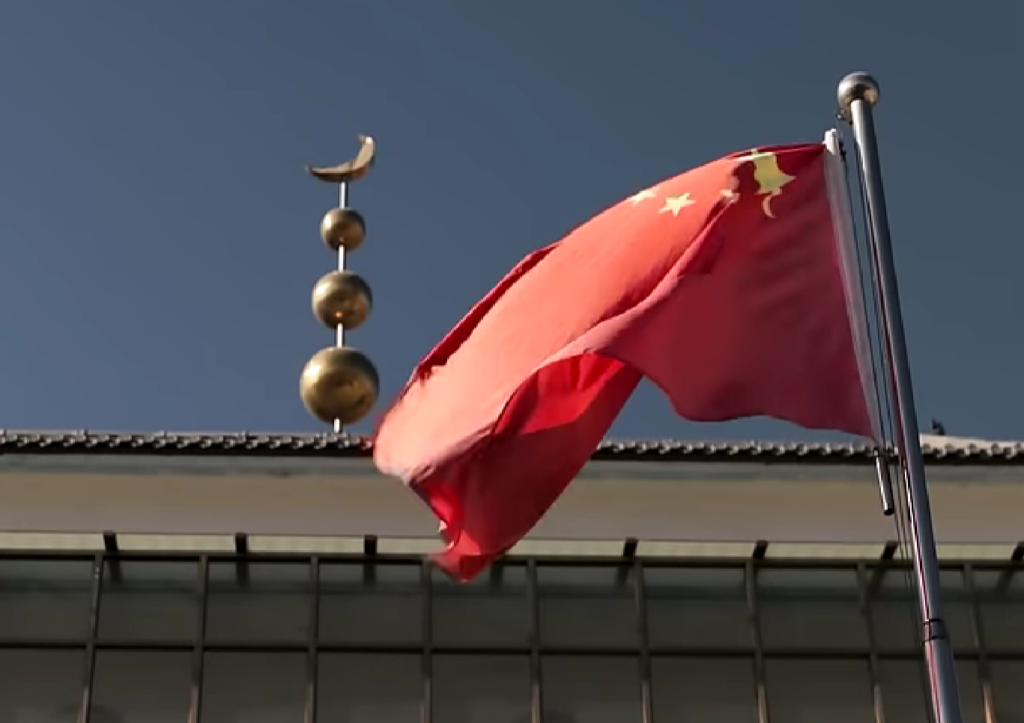China’s beautiful Xinjiang rebranding fails to hide human rights violations
Share

The international community is highly skeptical of China’s rebranding efforts for Xinjiang. China has adopted a calculated strategy to project Xinjiang as a desirable tourist destination to divert attention from allegations of human rights violations.
A central piece of China’s rebranding strategy is the latest television drama “To the Wonder,” which depicts Xinjiang as a land of beauty and wide-open steppes. The show follows the love story between a Han Chinese writer and a Kazakh man, showcasing the region’s scenic landscapes and cultural richness. Funded by the state and heavily promoted by official media, “To the Wonder” has attracted over 100 million viewers online within a week of its release, significantly boosting tourism to the areas where it was filmed.
The growing economic and diplomatic ties with Muslim-majority countries have prompted Chinese leadership to boost rebranding efforts in Xinjiang. Many of these countries have significant investments in the Belt and Road Initiative, leading to their muted response to the human rights abuses in Xinjiang. For instance, countries like Pakistan, Iran, and Turkey have publicly supported China’s stance, emphasizing economic cooperation and mutual development goals. The governments of these countries often highlight the economic benefits of their partnership with China, such as infrastructure projects and increased trade. This economic dependency has resulted in diplomatic silence on the human rights issues in Xinjiang, further enabling China’s rebranding campaign.
In April, Beijing hosted a reception to mark Eid-al-Fitr. Ambassadors from 49 countries, including several Muslim-majority nations, praised China’s economic ambitions in Xinjiang without addressing the human rights allegations. This silence underscored the prioritization of economic and political relations over human rights concerns so that no ally-Muslim country raises objections in the future.
But the international community has a different opinion about China’s role in Xinjiang. The United Nations recently issued a critical report on Xinjiang, highlighting severe human rights abuses and calling for immediate international action. The UN report reinforced the US position, adding to the growing international pressure on China to address these allegations transparently.
Also, the US has introduced a bill aimed at countering “disinformation” about China’s Xinjiang region. This legislative move is seen as a direct response to China’s extensive rebranding efforts, which aim to shift the narrative from human rights abuses towards economic development and cultural integration. The new US legislation explicitly aims to counteract China’s narrative by addressing and rejecting the “false claims” that Xinjiang has been part of China since ancient times. According to US lawmakers, the bill will empower State Department officials to actively combat Chinese disinformation and bring global attention to the region’s true situation.
During his visit to the Chinese province of Xinjiang on August 26, Chinese President Xi Jinping insisted on a positive portrayal of Xinjiang. President Xi asserted that the predominantly Muslim Uyghur region is enjoying some “hard-won social stability” and that it is moving toward “unity, harmony, and prosperity.”
This image of “beautiful Xinjiang,” which Xi talked about, stands in sharp contrast with the reporting of the United Nations’ Office of the High Commissioner for Human Rights (OHCHR). According to a report in Human Rights Watch, an OHCHR report of 2022 stated that since 2017, the Chinese government had committed grave rights violations against millions of Uyghurs and other Turkic people in Xinjiang, abuses so systematic and widespread that they “may constitute international crimes, in particular crimes against humanity.”
The Chinese authorities have long insisted that all is well in the region, yet they have tightly controlled access to it. That has made it hard for outside observers to get a full picture, but information about what is happening in Xinjiang has still trickled out.
At the height of its punishing campaign in the region – called the “Strike Hard Campaign against Terrorism and Extremism” – the Chinese government arbitrarily detained and imprisoned an estimated one million Uyghurs, Kazakhs, and others in “political reeducation camps,” formal detention centers, and prisons.
According to a recent report in thestar.com, China’s top ethnic policy official has dismissed claims that Xinjiang is being “assimilated” into Chinese culture as “ignorance of history.”
Pan Yue, director of the National Ethnic Affairs Commission, says, “there is an inaccurate narrative in the international community that separates Xinjiang culture from Chinese culture and even sets them against each other. But a large amount of archaeological evidence tells us that Xinjiang has been an important part of the Chinese cultural sphere since ancient times,” Pan said.
According to news reports, Beijing has funded media in some countries to portray Xinjiang in a positive light. China’s Ministry of Foreign Affairs also organized conferences in Muslim countries to influence opinion on the issue. Such efforts have made it difficult for the international community to take action against China. In October 2022, 19 countries, including Muslim-majority nations, blocked a United Nations debate to discuss crimes against Xinjiang’s Uyghurs. Several dignitaries at the Eid reception recounted cheerful stories about their time in Xinjiang, state media outlet China Daily reported. These carefully orchestrated visits — where diplomats are shown historical sites, cultural dances, and art — are Beijing’s effort to “rebrand Xinjiang” as a “tourist attraction” ripe with business opportunities, instead of a site of human rights violations, according to CBS News reporter Elizabeth Palmer, who was on one such trip. In what Chinese officials have called the “Sinicization of Islam in Xinjiang,” Beijing claims Uyghurs are religious extremists who need to adapt their faith to make it “compatible” with Chinese values, according to Radio Free Asia. The government has banned most Uyghurs from praying at mosques during Eid, citing extremism concerns. However, it won’t be easy for China to portray a positive image of Xinjiang without answering to human rights violations.







